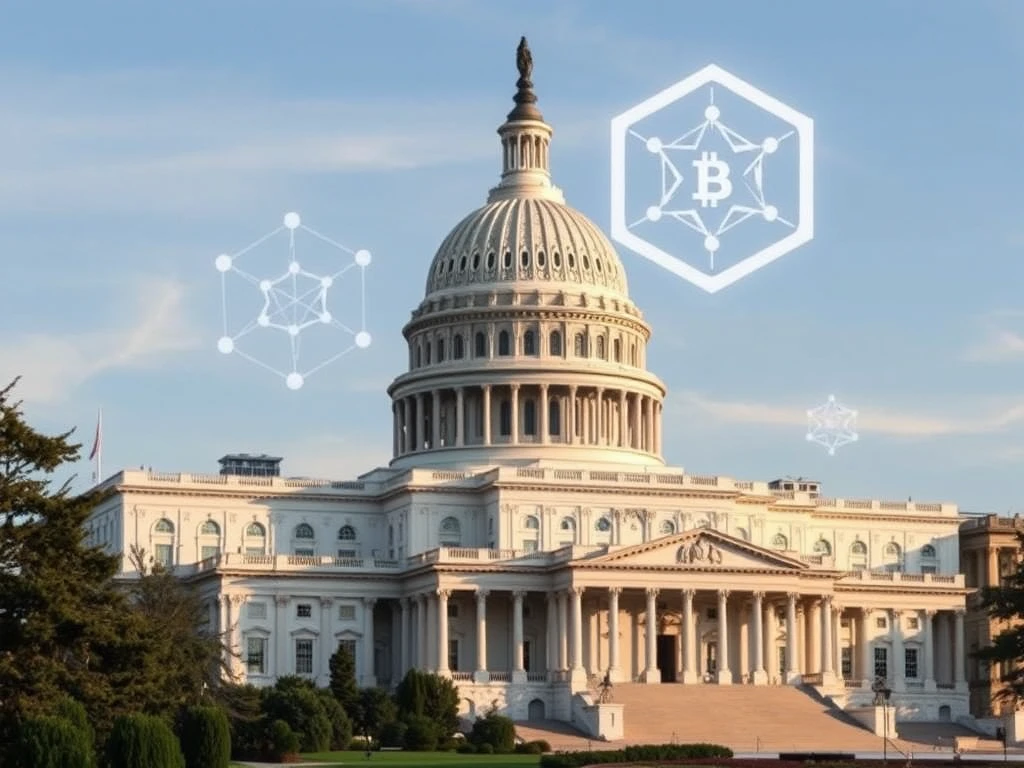Crucial Amendment Proposed for US Crypto Market Structure Bill Before Markup

The landscape of US crypto regulation is constantly shifting, and this week brings significant developments. Lawmakers in the US House of Representatives are preparing for a crucial markup hearing on a proposed crypto market structure bill, which could include important changes for the industry, particularly concerning blockchain developers.
What’s Happening with the Market Structure Bill?
The bill in question is the Digital Asset Market Clarity Act of 2025, also known as the CLARITY Act. This proposed legislation aims to establish a regulatory framework for digital assets in the United States. A key development ahead of the scheduled Tuesday markup hearing is the introduction of an amendment by Committee Chair French Hill.
The proposed amendment specifically addresses the “treatment of certain non-controlling blockchain developers.” It seeks to clarify that under the potential new law, certain developers or service providers involved in blockchain technology would not be classified as money transmitters. This distinction is significant because it would exempt them from stringent registration requirements typically applied to money services businesses.
This provision appears to be inspired by the Blockchain Regulatory Certainty Act, another piece of legislation championed by Representative Tom Emmer and a bipartisan group. Crypto advocacy groups have actively encouraged lawmakers to merge elements of these bills to create a more cohesive regulatory approach.
Stablecoin Legislation Also on the Horizon
While the focus is on the market structure bill in the House, the Senate is also moving forward with its own crypto-related legislation. The GENIUS Act, which aims to regulate payment stablecoins, is expected to face a vote soon. Senate Majority Leader John Thune has reportedly expressed a desire to finalize this bill this week.
Industry leaders like Coinbase Chief Legal Officer Paul Grewal see positive signs for stablecoin regulation, noting a “fairly consistent bipartisan consensus” on the need for clear rules. He also emphasizes the equal importance of a market structure bill for the long-term stability and growth of the digital asset space.
Is There Enough Support for These Bills?
Despite some positive signs, the path forward for both the CLARITY Act and the stablecoin bill is not without challenges. Support for the market structure bill, in particular, appears divided along party lines.
- Representative Maxine Waters, a ranking member of the House Financial Services Committee, has voiced strong opposition. She argues the CLARITY Act does not address potential illicit activities within the crypto industry and could even legitimize them.
- However, not all Democrats share this view. Representative Ritchie Torres, a co-sponsor of both the CLARITY Act and the Blockchain Regulatory Certainty Act, has indicated support for the market structure bill.
The upcoming markup hearing for the CLARITY Act will be critical. It will involve discussion and votes on amendments before the bill can potentially move to the full House chamber. The outcome of these votes and the level of bipartisan support demonstrated will be key indicators of the bill’s future prospects.
Key Takeaways on US Crypto Regulation:
Here’s a quick summary of the current situation:
- The House Financial Services Committee is holding a markup hearing on the CLARITY Act (market structure bill).
- An amendment is proposed to exempt certain blockchain developers from money transmitter requirements.
- This amendment reflects efforts to incorporate aspects of the Blockchain Regulatory Certainty Act.
- The Senate is pushing for a vote on the GENIUS Act (stablecoin bill) this week.
- While there is some bipartisan agreement on stablecoins, the market structure bill faces significant opposition from some Democrats.
The legislative process is often complex and slow, but the developments this week signal a potentially significant moment for US crypto regulation. The outcome of these hearings and votes will shape the future regulatory environment for digital assets and the businesses building on this technology.









